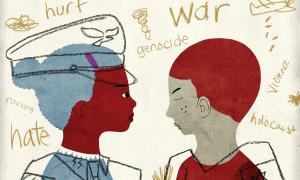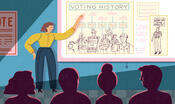webinar
Painting a Just Picture: Art and Activism

Co-hosted by experts from the National Gallery of Art, this webinar will offer new understandings of American visual art and its role in helping us understand our history.

